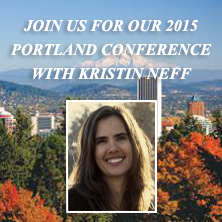
“Let go a little, you’ll have a little happiness. Let go completely, you’ll be completely happy.” Letting Go of Body Sensations Ordinary breathing, focusing on exhalation, intending to let go Diaphragm breathing. Breath of fire Heartmath: Breathing evenly through the heart with a positive emotion Scanning the body and releasing tension. Progressive relaxation. Using imagery to relax. Letting Go of Thoughts Two fundamental errors of thought: Overestimating the bad Underestimating the good Systematically argue against errors of thought, on paper or in your mind Identify “sub-personalities” generating errors of thought; thank them for sharing, ask if they have anything new to … Continue Reading





